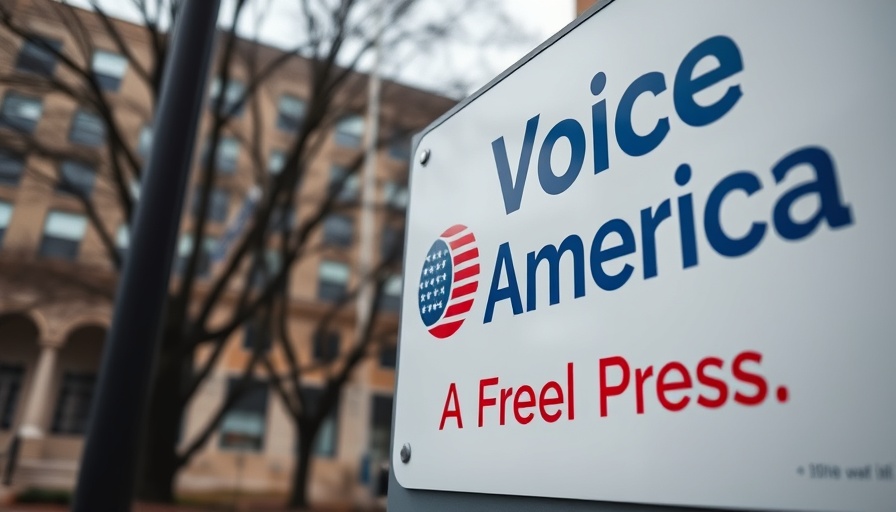
US Court Blocks Return of Voice of America Employees
In a significant turn of events, a federal appeals court has halted a ruling that mandated the Trump administration to reinstate over 1,000 employees of the Voice of America (VOA). The court's decision came on Saturday, nullifying a prior order from U.S. District Judge Royce Lamberth, who had directed the administration to take necessary actions to restore VOA employees and restore their broadcasting operations.
Understanding the Implications of the Court's Ruling
Judge Lamberth had specifically emphasized the need for the administration to resume radio, television, and online news broadcasts while also restoring $15 million in grants for related services like Radio Free Asia and Middle East Broadcasting Networks. However, the appeals court, in a narrow 2-1 decision, suggested that Lamberth may have overstepped his jurisdiction in issuing such orders.
The withdrawal of support for these broadcasts is alarming for those who value independent journalism. With over 1,000 VOA employees placed on leave and 600 contractors facing termination after the abrupt shutdown in March, the implications of halted broadcasts extend beyond the agency itself, potentially threatening the flow of vital information to global audiences.
The Context Behind the Court's Decision
The situation surrounding VOA’s operations largely stems from a directive issued during the Trump administration, which aimed to overhaul the agency's course amidst accusations of liberal bias in its reporting. This abrupt halt of broadcasts raises questions about the administration's intentions regarding international communications and public diplomacy efforts.
Clearly, there is a tension that exists between governmental control and media freedom. The recent court ruling brings this issue further into the spotlight, prompting discussions about the balance of power between state authorities and independent media entities, particularly those supported by taxpayer funding.
Future Implications for Independent Broadcasting
This ongoing matter compels us to consider the future of independent broadcasting in the U.S. Should the administration prevail in asserting greater control over media operations, we may witness a shift in how key governmental agencies like the U.S. Agency for Global Media function moving forward. Without a free and functioning media, especially in areas like international reporting, vital information may become limited or slanted.
Responses from Stakeholders
Responses to the court's decision have varied immensely. Advocates of press freedom are expressing concern over the government's ability to control media narratives. Meanwhile, others argue that certain oversight is necessary to ensure that taxpayer-supported content does not veer into biased territories. This complex divide showcases the various perspectives on media independence and governmental oversight.
What Lies Ahead?
As the appeals court’s ruling prevents an immediate return to work for those at VOA, questions linger about the future of public broadcasting. Will the employees finally get restored, or will this become a protracted legal battle extending for months or even years? The outcome could shape not only the agency but also the larger narrative regarding media integrity throughout the nation.
Given the vital role of unbiased journalism, this issue affects every American and consumers of news abroad.
Conclusion: The Need for Vigilance in News Reporting
The ongoing developments at Voice of America serve as a crucial reminder of the importance of advocating for transparency and accountability in news reporting. Every citizen must engage with these issues to foster an environment where independent journalism can thrive without fear of governmental interference.
 Add Row
Add Row  Add
Add 



Write A Comment